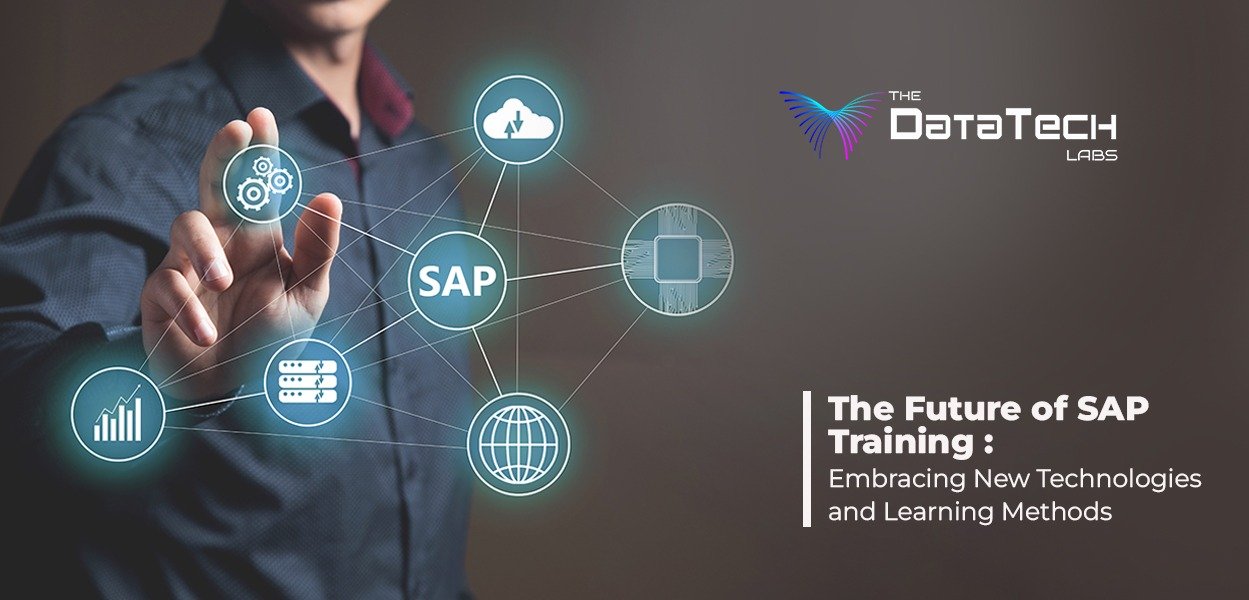The Future of SAP Training: Embracing New Technologies and Learning Methods
Introduction:
In the ever-evolving world of SAP, training and certification play a vital role in ensuring consultants stay up-to-date with the latest technologies and methodologies. However, traditional training methods are gradually giving way to innovative approaches that leverage emerging technologies. This blog explores the future of SAP training, highlighting the transformative potential of technologies such as AI, virtual reality (VR), and augmented reality (AR). By embracing these advancements, SAP consultants can enhance their learning experiences, acquire new skills, and adapt to the dynamic demands of the SAP landscape.
The Rise of Innovative Technologies in SAP Training:
As technology continues to disrupt industries, the realm of SAP training is no exception. One such disruptive force is artificial intelligence (AI), which is reshaping the way consultants learn and interact with SAP systems. AI-powered chatbots and virtual assistants can provide personalized training experiences, answering queries and providing guidance in real-time. These intelligent systems can analyze data and recommend customized learning paths, ensuring consultants receive targeted training based on their specific needs.
Virtual reality (VR) and augmented reality (AR) are also making inroads into SAP training. VR simulations allow consultants to immerse themselves in realistic SAP environments, where they can practice their skills, perform system configurations, and troubleshoot issues in a safe, virtual setting. AR overlays digital information onto the physical world, enabling consultants to access real-time data and instructions as they work on SAP projects. These immersive technologies enhance engagement and retention, fostering a more dynamic and effective learning process.
The Benefits of Embracing AI, VR, and AR in SAP Training:
The integration of AI, VR, and AR into SAP training brings a multitude of benefits for both consultants and organizations. Firstly, these technologies provide a more interactive and engaging learning experience, capturing the attention of learners and increasing their motivation. By immersing themselves in realistic scenarios, consultants can practice their skills in a risk-free environment, building confidence and competence before applying their knowledge to real-world projects.
AI-powered training solutions can deliver personalized content, ensuring consultants receive the most relevant information and resources tailored to their individual needs. These systems can track progress, identify knowledge gaps, and suggest additional training modules, enabling consultants to continuously improve their skills and stay ahead of the curve.
VR and AR simulations offer a practical and hands-on approach to SAP training. Consultants can experiment with different scenarios, explore system functionalities, and gain practical experience without impacting live environments. This reduces the risk of errors and enhances consultants’ problem-solving abilities, ultimately leading to more successful and efficient project implementations.
Furthermore, these technologies enable remote and self-paced learning, providing flexibility for consultants to acquire knowledge at their own convenience. Consultants can access training materials, collaborate with peers, and receive guidance from experts regardless of their location. This accessibility is particularly valuable in today’s globalized and distributed work environments, where consultants may be geographically dispersed.
Challenges and Considerations :
While the integration of AI, VR, and AR in SAP training holds immense promise, there are challenges and considerations that organizations must address. The cost of implementing these technologies, including the development of training content and the required hardware, can be a significant barrier. Organizations must carefully evaluate the return on investment (ROI) and weigh the benefits against the associated expenses.
Another consideration is the need for proper infrastructure and technical support to enable seamless integration of these technologies. Robust IT infrastructure, high-speed internet connections, and compatible devices are essential for delivering optimal training experiences. Organizations must ensure that consultants have access to the necessary tools and resources to fully leverage these emerging technologies.
Conclusion:
The future of SAP training is evolving rapidly, with emerging technologies like AI, VR, and AR at the forefront. By embracing these advancements, SAP consultants can enhance their learning experiences, gain practical skills, and adapt to the changing demands of the SAP landscape. The integration of AI enables personalized and targeted training, while VR and AR offer immersive simulations for practical learning. However, organizations must address challenges related to cost, infrastructure, and technical support. By investing in these innovative training methods, organizations can empower their consultants with the knowledge and skills needed to drive successful SAP implementations in the digital age.

Leave a Reply